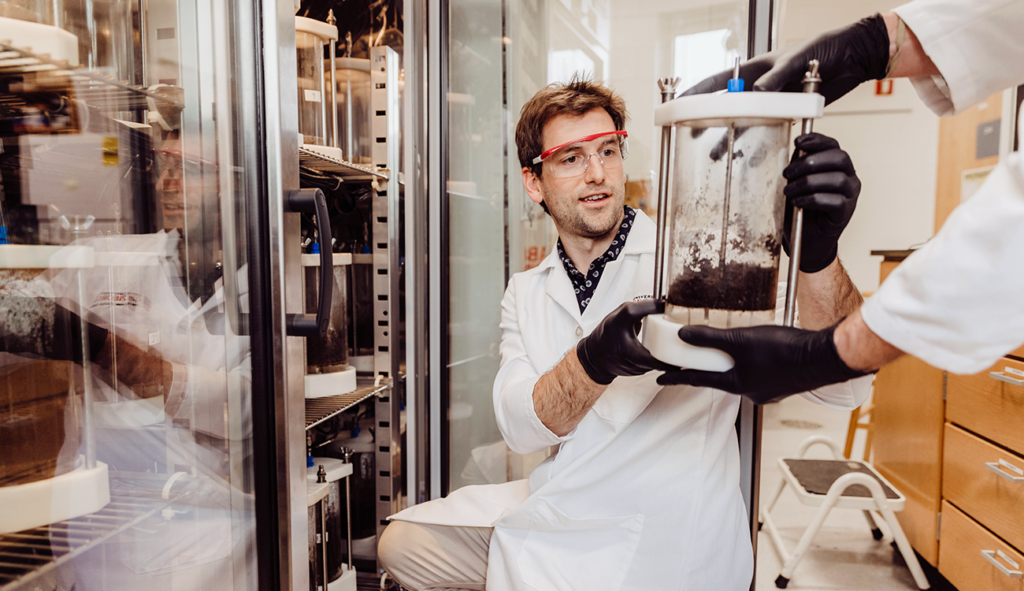New Materials Institute pioneering replacements for plastic

For Evan White, growing up outside Atlanta meant witnessing significant changes in his landscape. His hometown of Lilburn, Georgia, tripled its population between 1980 and 2000, and White watched as nearby woods became neighborhoods and parking lots. He saw trash, much of it plastic, accumulate in the streams and tributaries where he played.
“You don’t have to go very far into nature to see the evidence of human expansion,” said White, now an assistant research scientist at UGA. “Different particles of plastic will wind up at a final resting place according to their chemical reactivity and their density. Most of these plastics like to float on water, and they go where the water goes.”
These formative experiences greatly influenced his career path, leading him to the university’s New Materials Institute, directed by Jason Locklin, and its Center for Advanced Polymers, Fibers & Coatings. White is part of a team focused on a single goal: to develop materials and plastic replacements that completely break down and return to nature when discarded.
